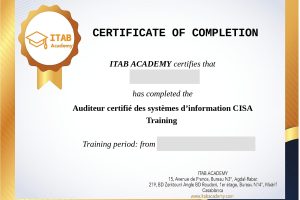Elevate Your Leadership: A Guide to Choosing the Right Leadership Course
Effective leadership is essential for driving organizational success, inspiring teams, and achieving business objectives. Whether you’re a seasoned leader looking to hone your skills or an aspiring manager preparing to take on a leadership role, investing in leadership courses can provide you with the knowledge, tools, and strategies needed to excel in today’s dynamic business environment. This comprehensive guide offers valuable insights and tips to help you choose the perfect leadership course to unlock your leadership potential and propel your career forward.
**1. Define Your Leadership Goals and Objectives**
Before embarking on your search for the ideal leadership course, take the time to clarify your leadership goals and objectives. Ask yourself the following questions:
– What specific leadership skills or competencies do I want to develop or enhance?
– What are my short-term and long-term career aspirations as a leader?
– Are there any specific challenges or areas of improvement I want to address through leadership training?
– What type of leadership style resonates with me, and how do I want to lead my team or organization?
By defining your leadership goals and objectives, you can narrow down your options and focus on leadership courses that align with your aspirations and development needs.
**2. Research Leadership Course Options**
With a clear understanding of your leadership goals, it’s time to research leadership course options available to you. Consider the following factors when evaluating leadership courses:
– Course Content and Curriculum: Review the course content and curriculum to ensure that it covers the leadership skills, theories, and practices you want to learn or develop.
– Delivery Format: Determine your preferred learning format, whether it’s in-person, online, or blended learning, and choose a course that accommodates your schedule and learning style.
– Accreditation and Reputation: Look for leadership courses offered by reputable institutions, organizations, or professional associations that are recognized for their quality and credibility.
– Instructor Expertise: Research the qualifications, experience, and expertise of the course instructors to ensure they are knowledgeable and experienced leaders in their field.
– Reviews and Testimonials: Read reviews and testimonials from past participants to gauge their satisfaction with the course content, instructors, and overall learning experience.
**3. Assess Course Features and Resources**
Evaluate the features and resources offered by each leadership course to determine which one best meets your needs and preferences. Consider the following:
– Interactive Learning Activities: Look for courses that incorporate interactive learning activities, case studies, simulations, and group discussions to enhance engagement and retention.
– Practical Application: Choose a course that provides opportunities for practical application of leadership concepts through real-world projects, assignments, or simulations.
– Coaching and Mentorship: Determine if the course includes coaching or mentorship opportunities to provide personalized guidance and support throughout your leadership development journey.
– Networking Opportunities: Consider courses that offer networking opportunities with fellow participants, industry experts, and guest speakers to expand your professional network and exchange ideas.
– Additional Resources: Explore additional resources such as reading materials, online forums, webinars, and toolkits provided by the course to supplement your learning and development.
**4. Consider Certification and Recognition**
Depending on your career goals and industry requirements, you may want to consider leadership courses that offer certification or recognition upon completion. Evaluate the following:
– Certification: Determine if the course offers a formal certification or credential that you can add to your resume or LinkedIn profile to showcase your leadership skills and qualifications.
– Accreditation: Verify if the course is accredited by relevant accrediting bodies, associations, or organizations to ensure its credibility and recognition within the industry.
– Industry Recognition: Research the reputation and industry recognition of the certification or credential offered by the course to assess its value and relevance in your field.
**5. Reflect on Career Benefits and Return on Investment**
Lastly, consider the potential career benefits and return on investment (ROI) associated with completing the leadership course. Reflect on the following:
– Career Advancement: Assess how the leadership course can enhance your leadership capabilities, qualifications, and marketability to employers and advance your career prospects.
– Salary Increase: Research the average salary increase or earning potential associated with obtaining leadership certifications or credentials in your industry or field.
– Job Opportunities: Explore job boards, career websites, and LinkedIn profiles to see if employers value and prioritize candidates with leadership certifications or credentials.
**Conclusion**
Choosing the right leadership course is a critical step towards achieving your leadership goals and advancing your career as a leader. By defining your leadership goals, researching course options, assessing features and resources, considering certification and recognition, and reflecting on career benefits and ROI, you can make an informed decision and select the perfect leadership course to elevate your leadership skills and propel your career forward. Remember to invest time and effort into your decision-making process to ensure that the leadership course aligns with your aspirations and empowers you to become a successful and impactful leader in your organization and beyond.




